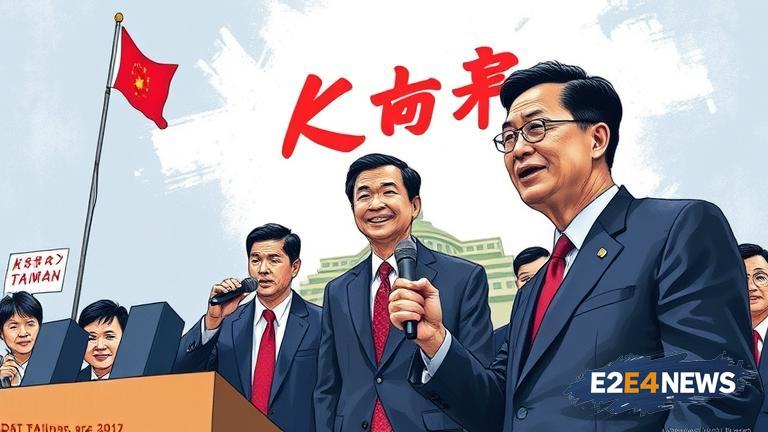In a significant development in Taiwanese politics, the opposition Kuomintang (KMT) party has managed to maintain its control over the parliament. This comes after the ruling Democratic Progressive Party (DPP) attempted to recall several KMT lawmakers but ultimately failed in their bid. The recall bid was seen as a crucial test of strength between the two major parties in Taiwan. The KMT, which has traditionally been the dominant force in Taiwanese politics, has been working to regain its influence after suffering a series of electoral setbacks in recent years. The DPP, on the other hand, has been seeking to consolidate its power and push through its legislative agenda. The failure of the recall bid is a significant setback for the DPP and its leader, President Tsai Ing-wen. The KMT’s success in retaining its parliamentary seats is a testament to the party’s enduring popularity and influence in Taiwanese politics. The recall bid was widely seen as a referendum on the DPP’s performance in office, and the outcome suggests that many voters remain skeptical of the party’s ability to deliver on its promises. The KMT has been critical of the DPP’s handling of various issues, including the economy, national security, and cross-strait relations with China. The party has also been seeking to capitalize on growing public discontent with the DPP’s policies. The failure of the recall bid is likely to embolden the KMT and its allies, who may seek to launch further challenges to the DPP’s authority in the coming months. The outcome of the recall bid is also likely to have significant implications for Taiwan’s relations with China, which has been seeking to increase its influence over the island. The KMT has traditionally been seen as more conciliatory towards China, while the DPP has taken a more hawkish stance. The retention of KMT control over the parliament may lead to a shift in Taiwan’s policy towards China, although it is unclear what form this may take. The DPP has vowed to continue its efforts to push through its legislative agenda, despite the setback. The party has also sought to downplay the significance of the recall bid, arguing that it was merely a minor setback. However, the outcome is likely to have significant implications for the party’s prospects in upcoming elections. The KMT, on the other hand, has been celebrating its victory, with party leaders hailing the outcome as a major triumph. The party has also sought to reach out to its supporters, thanking them for their loyalty and urging them to continue their efforts to promote the KMT’s agenda. The outcome of the recall bid has also been closely watched by international observers, who are seeking to gauge the implications for Taiwan’s relations with the wider world. The retention of KMT control over the parliament may lead to a shift in Taiwan’s foreign policy, although it is unclear what form this may take. The DPP has traditionally been seen as more supportive of Taiwan’s participation in international organizations, while the KMT has been more skeptical. The outcome of the recall bid is a significant development in Taiwanese politics, and is likely to have far-reaching implications for the island’s future. The KMT’s success in retaining its parliamentary seats is a testament to the party’s enduring influence and popularity, and suggests that the party may be poised for a comeback in upcoming elections. The DPP, on the other hand, faces significant challenges in seeking to regain its momentum and push through its legislative agenda. The outcome of the recall bid is a major setback for the party, and may have significant implications for its prospects in the coming months.
